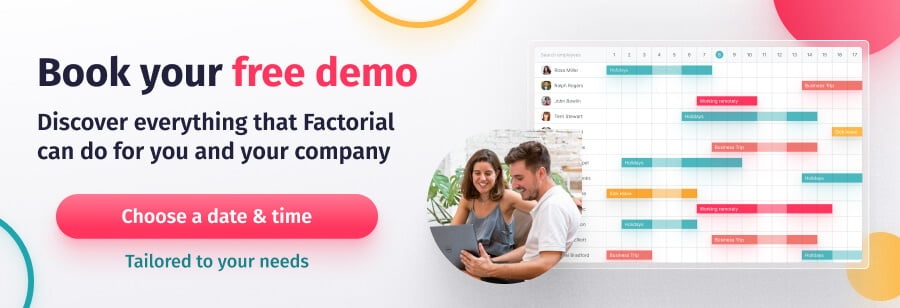What is ADHD?
ADHD stands for Attention Deficit Hyperactivity Disorder. It is a neurodevelopmental condition, which means that it is a condition that affects how your brain develops and works.
People with ADHD are neurodiverse because their brains work differently. ADHD is not a learning disability or a mental health condition, although mental health issues such as sleep and mood disorders can be linked to ADHD symptoms.
Most people with ADHD are diagnosed in childhood, but an adult diagnosis is also common.
Symptoms of ADHD
Symptoms of ADHD are often broken into three categories:
- Distractions and inattention: difficulty focusing, being disorganised, trouble managing time and following instructions
- Hyperactivity and impulsivity: restlessness, fidgeting, risk-taking, mood swings
- A combination of both
Other symptoms can include an unusual amount of talking and interrupting others, feeling very sensitive and having difficulty maintaining relationships.
How Does ADHD Affect Adults at Work?
Positive Behaviours
Adults with ADHD can bring the following benefits to their work:
Creativity: Research has found that people with ADHD are more likely to think outside the box and produce unique solutions to problems.
Hyper-focussed and detail-orientated: When someone with ADHD finds work that interests them, they often focus on one task, which can lead to good results. Their brains can also notice details that other brains filter out.
Energetic: ADHD is often associated with impulsivity, which can be harnessed in the workplace as energy to get things done and try new approaches.
Good in an emergency: Studies have also found that people with ADHD have brains that produce more Theta waves. Theta waves help to relax you, which can lead to daydreaming and distraction, but they also have the benefit of keeping you calm during a crisis.
Challenging Behaviours
Some symptoms of adult ADHD can impact how well an individual functions within a team and in specific roles.
Unfinished tasks: People with ADHD can find it hard to stick to tasks they are not fully engaged in, such as administrative work, and may move on to something they find more interesting.
Poor organizational skills: It can be difficult for people with ADHD to prioritise what needs to be done, calculate the time required for a task, complete other tasks simultaneously, and stick to a deadline.
Impulsive actions: The energy to get things done that we mentioned earlier can also lead to making decisions too quickly, difficulty waiting to take turns in meetings, and fidgeting. These behaviours can impact colleagues and lead to difficult relationships.
Poor time management: Some people with ADHD get easily distracted, which can lead to a tendency for lateness and lower attendance at work.
Mental health issues: Although ADHD is not a mental health disorder, research shows there is a strong link between ADHD symptoms and other mental health issues, such as anxiety, depression and substance misuse, which can impact how well someone can perform at work
ADHD Accommodations at Work
The best way for employers to accommodate ADHD symptoms at work is to talk to the individual employee and agree on adjustments to the workplace or role as necessary. In most cases, these adjustments are relatively minor and outweighed by the benefits gained from having employees with ADHD on the team.
If the symptoms of ADHD have a significant impact on an individual, ADHD can be viewed as a disability under the 2010 Equality Act. Employers then have a duty to protect their staff members from discrimination or harassment and are legally obliged to make reasonable adjustments.

How to Manage Someone with ADHD at Work: 10 Tips
Managing someone with ADHD at work can be incredibly rewarding when you see the high-quality work that they are capable of producing when they are properly supported. Here are 10 tips if you are managing someone with ADHD or work in the human resources department and need to support managers:
- Understand their symptoms: The very first thing you need to do is learn how your employee’s ADHD manifests itself in the workplace. Everyone is different, so it is important not to make assumptions or rely on stereotypes.
- Have an open conversation about how they work best: Understanding symptoms is not the same as knowing what is best for someone when it comes to their work. Take the time to have a relaxed, honest discussion about how to get the best from your employee with ADHD. You may not be able to meet every requirement, but understanding what is ideal is a good starting point.
- Pay attention to the work environment: If your employee gets easily distracted, work with them to create a space where they can focus more easily.
- Be flexible: If possible, offering a flexible schedule can help people with ADHD manage their workload as it allows them to work at the time when they work best and can remove the stress around punctuality in the morning.
- Play to their strengths: As with all employees, you will get the most out of ADHD employees when you assign work that fits their interests and behaviours.
- Support organizational tasks: Administration is a necessary element of most roles, so discussing how to approach it and implementing strategies based on ADHD symptoms can help your employees with ADHD be more efficient.
- Celebrate the positives: Feeling different to other people can take a significant emotional toll. As their manager, actively celebrating the good things that come with an ADHD brain (such as the energy that comes from hyperactivity) can make a big difference to how someone feels about themselves and, therefore, how they perform in their role.
- Promote self-care and well-being: Employees with ADHD are often at high risk of burnout, so it’s important to have a workplace culture that encourages breaks, exercise, healthy eating, and time for social connections.
- Keep communication active: Providing regular feedback and actively listening to what your employees with ADHD need and value ensures that they feel supported and helps you work as a team together.
- Offer external support: Professional support, such as an ADHD coach or therapy from outside the organisation, can help people with ADHD develop strategies for managing their symptoms in the workplace.
How to Cope with ADHD at Work
How to cope with ADHD at work depends on your symptoms, your role, and how your company approaches neurodiversity. Many adults are now diagnosed with ADHD and a search on the internet will reveal specific tips for managing ADHD symptoms in the workplace, from setting routines to using rewards and much more.
The best thing you can do for yourself is to spend some time working out how your ADHD affects your working life, both the good points and those that are more challenging. One way to think of this is to work out the superpower that your ADHD gives you and also the Achilles heel (the vulnerable spot). Being self-aware is key to working with, not against, your ADHD symptoms. Self-awareness can also make it easier to talk about your ADHD with your employer and your colleagues. Once people understand that you are neurodiverse and how it impacts your work and your mental health, they can support you more easily and make workplace accommodations.
Lastly, it can take time to adjust to having ADHD diagnosed. If this is a recent development for you, be kind to yourself. You can find more information at ADHD UK.



